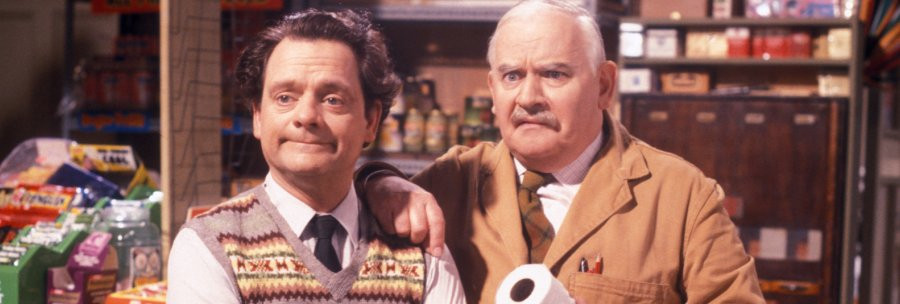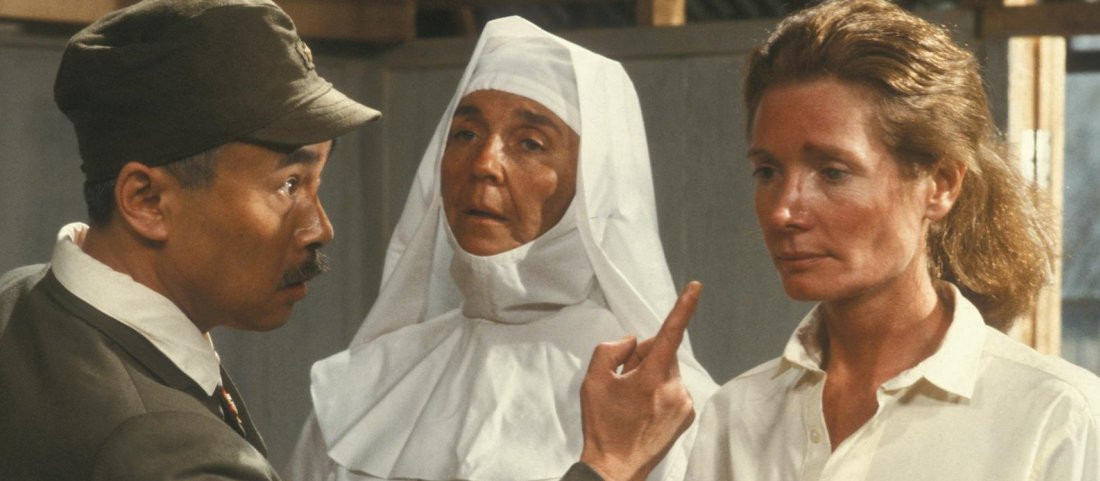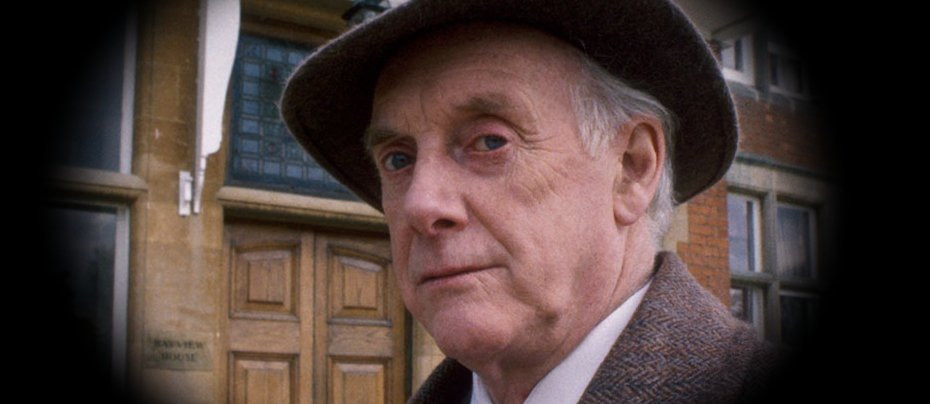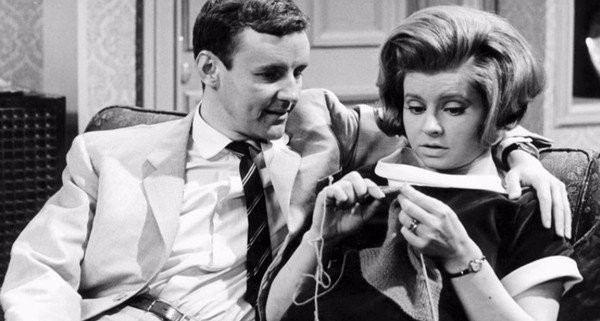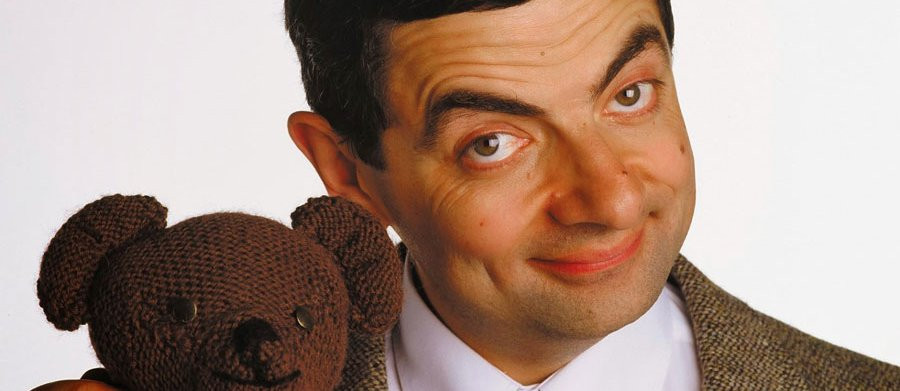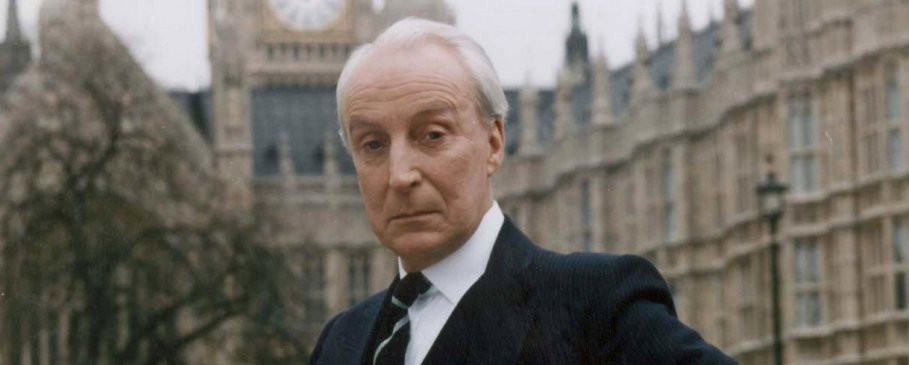
Waiting for God
1990 - United KingdomReview by Brian Slade
‘Luxury bungalows and apartments for the retired.’ These were the words that welcomed guests to Bayview, a retirement home in Bournemouth that would run smoothly but for one particularly troublesome resident – Diana Trent. When new resident Tom Ballard arrived, we were treated to five series of gloriously funny and at times dark comedy about the treatment of the elderly in ITV’s hit 1990 sitcom, Waiting for God.
Action begins when Tom Ballard is dropped off by his son, daughter-in-law and four grandchildren to commence his residency at Bayview. Graham Crowden plays his part to perfection. Tom is partly appalled that his life should come to this, ditched at a home when he believes he hasn’t even begun to live yet. After a career as an accountant, Tom drifts off to a fantasy life that he has led, and still does, when it suits him, although it becomes clear that Tom’s flights of fancy hide a steely and shrewd mind determined to make the most of whatever years he has remaining.
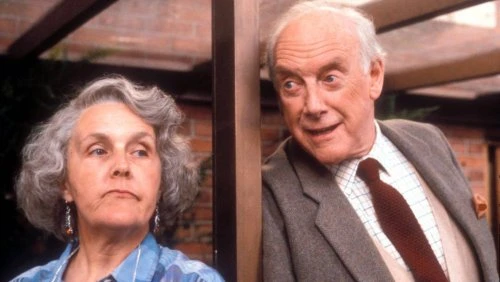
Waiting for Tom is a whole home of those who have patiently accepted their fate, obeying mealtimes, effectively doing nothing more than just waiting for God. All except Diana Trent. Giving a British Comedy award-winning performance, Stephanie Cole plays as bitter a character television sitcom has ever seen. Diana’s levels of sarcasm and scorn are constant as she distances herself from all around her. Her enjoyment is based entirely around criticism of and frustration with all she sees.
Tom is placed in the recently vacated apartment next to Diana. A new resident to Diana is of no interest, even as the eccentric Tom performs emu and flamingo impressions and introduces himself as Tom Jones. ‘Oh my God, a fruitcake,’ is Diana’s first judgement of her new neighbour.

The principal staff members of Bayview are Harvey Bains and Jane Edwards. Bains (Daniel Hill) is the slimy manager of the complex, far more concerned with budget sheets and cost cutting than anything beyond the most basic of care for the residents. They are numbers on a ledger to him, proven by his frequent referencing to Tom as Dan. The biggest thorn in his side is Diana, the one resident prepared to call him out on his failings – until Tom’s arrival.
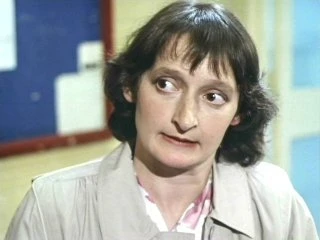
Edwards meanwhile is insipid in her worship of Bains. She vainly tries to remain cheerful and helpful with the residents, even Diana, but her idolisation of Bains means that she won’t deviate from his intentions. Janine Duvitski was becoming a familiar face on British screens at the time, also playing Victor Meldrew’s neighbour Pippa in One Foot in the Grave, and her portrayal of the religious and love-starved Jane shows us why she has been a welcome regular on our screens ever since.
In the first series, we see excellent development of the relationships between the characters. Diana has no tolerance for fools and therefore no interest in Tom, until Tom goes on a hunger strike in order to get better food in the dining room for the residents. Seeing that Tom just might have a functioning spirit akin to her own beneath his frequent fantastical escapes, Diana begins to tolerate him. They escape for a jaunt to Brighton in a Porsche that Diana is looking after for her only family, the niece that she cannot stand. In Brighton we get a first glimpse of the reality of some of the reasons for Diana’s bitterness as she reflects on the painful wartime memories the town’s seafront holds.
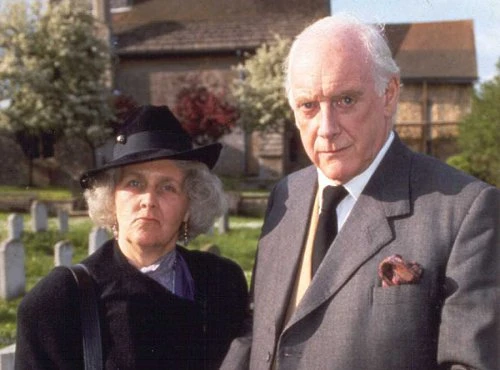
By the middles of the series it becomes apparent that Diana has actually made a friend in Tom. When he has a minor heart scare that hospitalises him briefly, it is she that sleeps in the waiting room while Tom’s own offspring begrudgingly arrive hours later having been torn away from a drink-fuelled party. Tom’s self-centred daughter-in-law Marion is merely keen to see what they will be left when Tom is gone, so after discharging himself Tom is swift to warn his drippy son Geoffrey that he needs to rid himself of Marion, and the conflict in the pair’s marriage is often revisited during the five series.
There are a number of themes that re-occur during the run of Waiting for God. Tom and Diana both have health scares that prompt them to consider and sometimes welcome the idea that the end may soon be upon them. The relationship between Harvey and Jane gathers momentum in the later series, but the most significant change in dynamic is the relationship between Diana and Tom.
Various potential love interests come and go with minor characters thrown in at times, but the leading pair do decide to co-habit before Tom finally persuades Diana to be his bride in the final series, using some decidedly underhand tactic to convince her.
Waiting for God treads some ground that You’re Only Young Twice covered with Peggy Mount and Pat Coombs, but there is a more sardonic thread to Waiting for God. Diana is hugely bitter about her closing years being spent in a home. When dismissing one of Jane’s well-meaning pep talks, she reminds her that, ‘On my 60thbirthday I was a freelance photographer hanging out of a helicopter somewhere over the Cambodian border while various warlords were trying to shoot the arse off me.’ That she should now be referred to as a senior citizen and not something more respectful is abhorrent to her. But until Tom’s arrival, she is prepared to do little more than accept her fate and simply make life difficult for those around her.
Tom has a far happier demeanour. His is an equally unhappy acceptance of his fate, but he uses his eccentric charm to get his way and show Diana that change is possible. ‘We’ve got to have an adventure…this is my next adventure,’ he tries to convince her.
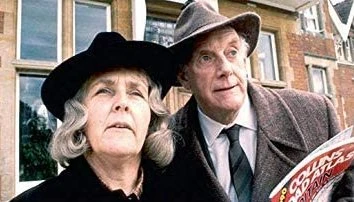
There is a certain irony that Stephanie Cole was still in her forties when she began playing Diana Trent, given that show was meant to rebel against the idea that the elderly were to be written off ahead of their time in care homes. But that cannot take away from the performance she gives as despite her acid tongue, one cannot help sympathising with her lot. The show only works however with the addition of Tom. Graham Crowden brings an energetic charm to the show that offsets the bitterness of Diana perfectly.
For five years Waiting for God kept us entertained with the antics of the Bayview residents. We sympathised with them, rooted for them but more than anything, we liked them and laughed with them.
Seen this show? How do you rate it?
Seen this show? How do you rate it?
Published on April 8th, 2020. Written by Brian Slade for Television Heaven.


